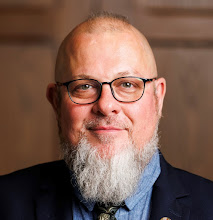| The Nightmare by John Henry Fuseli, 1781 |
 The Haunted Hotel by Wilkie Collins
The Haunted Hotel by Wilkie CollinsMy rating: 2 of 5 stars
Wilkie Collins has apparently written better books than this, and given he was a friend of Charles Dickens, he certainly moved in literary circles. The story builds up well, but the finale is a retelling of the murderous plot (that by this stage one could have guessed) that is retold in the form of a proposal for a play by the evil protagonist (or at least the first person we meet in the story). The "haunting" is rather light-weight, and the ending asks the reader is "there any explanation of the mystery of your own life and death?" What does this mean? Is this a B-grade novel from the 1880s? It would seem so. Like Downton Abbey meets a PG-rated horror movie. Like any period horror movie where the build-up is ruined by the sight of the evil spirit or alien. It was scary until the spectre is revealed and then the climax is a slow-paced decline into lameness. It has some entertainment value, and some historical value, but the experience is ephemeral and rather wasted on the modern reader.
View all my reviews
 Donate
Donate








 The Political Flâneur: A Different Point of View
The Political Flâneur: A Different Point of View